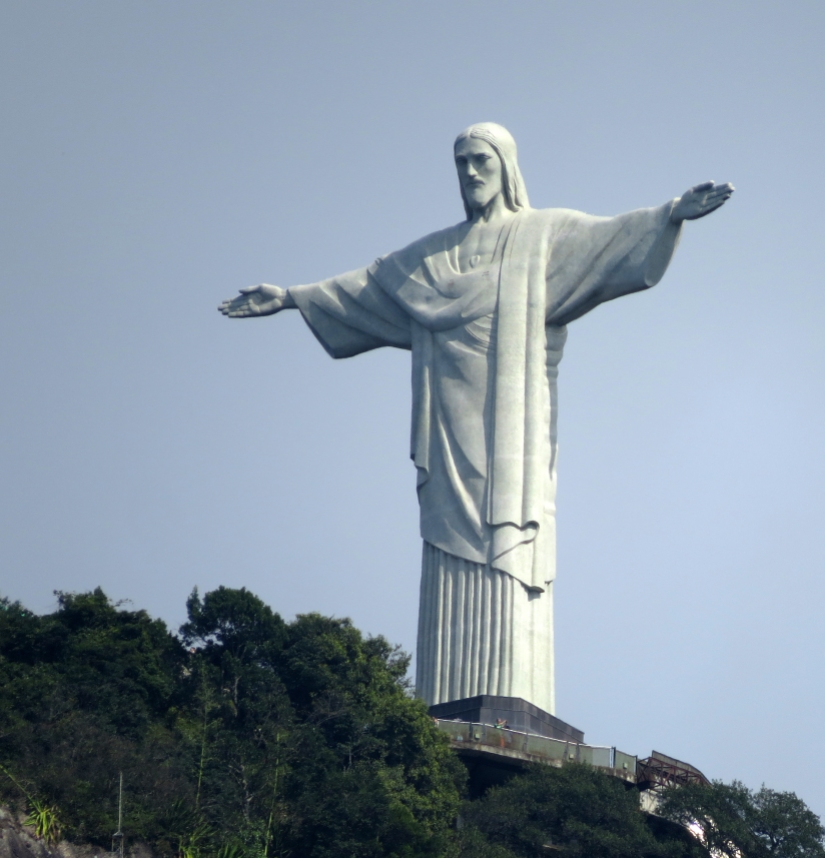Blog
Heaven and hell – the Pastafarian view
The Pastafarian idea of a heaven is that it has a beer volcano and a stripper factory. Hell is similar to the heaven, but the beer is stale and the strippers have venereal diseases (some say Las Vegas is akin to hell on earth). Why is that? How can Heaven and Hell be so close? Aren’t the two supposed to be radically different? Let me try to explain.
Suppose a stray bullet just missed your head, by a couple of centimeters. See? Even the difference between life and death can be tiny. Or, if the chromosomes that made you were arranged a tiny bit differently in that first second – then you’d be of a different sex (I’m not a biologist, but I’m told that’s how it works). A less dramatic example – imagine that you’ve studied real hard for a really difficult exam, and then just didn’t make it – because of a silly mistake, perhaps because you were distracted by a fly on the exam. Hellish, isn’t it? Now imagine how it feels if the prof finds out she made a mistake in the exam form, and gives the entire class a 0.1 point bonus – which means you’ve made it – how does that feels? Now add a cold beer to the equation… Yeah! Heavenly, right?
The point I’m trying to make here, is that sometimes, the tiniest things can make a huge difference. The Pastafarian faith, in particular our concept of Heaven and Hell, illustrates this point, reminding us to value what we have. In its infinite wisdom (and in a permanent state of drunkenness) the Flying Spaghetti Monster teaches us to cherish those small pleasures that make life fun. R’amen!
‘Christianity’ is not a religion
‘Christianity’ is not a religion. This was ruled today by the Dutch Council of State’s Administrative Jurisdiction Division (Raad van State). Therefore, wearing a cross by adherents of Christianity cannot be regarded as an expression of religious belief. According to the judgment, the satirical element of Christianity is so predominant that it does not meet the criteria of “cogency, seriousness, cohesion and significance” that the ECHR applies when interpreting the freedom of religion. Christianity lacks the required seriousness and cohesion. The Administrative Jurisdiction Division recognises the relevance and significance of the right to freely express (satirical) criticism of religious dogmas and institutions. Such criticism, even though it does relate to religion, cannot, in itself, be considered as a body of thought that is protected by the freedom of religion.
The English press release: http://bit.ly/2KWUF8k
The Dutch press release: http://bit.ly/2nCQnK1
Tomorrow, the Dutch Council of State’s Administrative Jurisdiction Division will publish a verdict in a similar case, discussing whether ‘Islam’ can be considered a religion. It is widely expected that the verdict will be the same. Rulings on other religions are due next week.

The statement above is, of course, nonsense. It is absurd to think that the highest court in a democratic country would issue such a verdict, violating the separation of Church and State. Sadly, it is the reality. The first alinea is a direct quote by Bart Jan Van Ettekoven, chairman of the Dutch Council of State’s Administrative Jurisdiction Division. With one subtle difference – he is referring to Pastafarianism, the belief in the Flying Spaghetti Monster. I just took the liberty to replace “Pastafarianism” in his post with “Christianity”.
Yesterday the Dutch Council of State ruled that Pastafarianism can not be considered a religion. According to the ruling, the “lack of cohesion is illustrated by the relationship set out in Henderson’s letter [considered by Pastafarians to be their Revelation] between the decline in the number of pirates since 1800 and global warming”. Imagine other faiths being judged by this standard, where lack of consistency and coherence in holy texts is grounds for dismissal as a religion. How many ‘true’ religions will be left in the world?